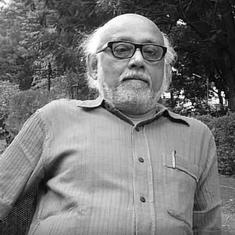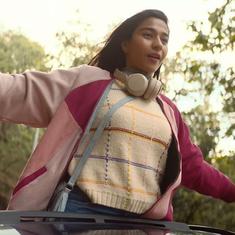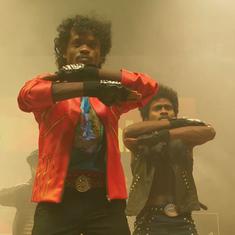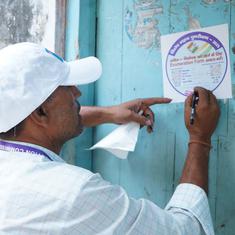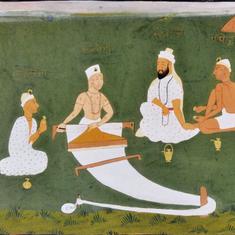Akhu Chingangbam remembers what it was like years ago when a three-month-long blockade on the highways of Manipur led to a shortage of medical supplies, petrol and cooking gas all over the state. The hatred between the Meiteis and Nagas, two of the communities in the state, meant that both suffered during the blockade but neither was willing to help the other.
“It made me utterly sad,” Chingangbam, a musician, said. “In those days, I visited a children’s home in Senapati district to distribute medical supplies. I saw children from different ethnic backgrounds living together happily, singing their lungs out to one song. They really didn’t care where they belonged and what caste or creed they were from. All I saw was innocence.”
The experience moved Chingangbam so much that he created a musical project to bring peace between the various ethnic tribes of Manipur, teaching children from various ethnic backgrounds to sing and play instruments. Chingangbam named the project A Native Tongue Called Peace.
The Manipur-based musician is a familiar face in the North East: he is the face of popular folk-rock band Imphal Talkies, a unique group that focuses on protest songs, reflecting the injustice and violence faced by his people in Imphal and Manipur. Chingangbam’s lyrics and the band’s music are deep-rooted in local culture and language – listening to them is a powerful experience.
In May 2015, the singer finally began A Native Tongue Called Peace with the support of Foundation for Social Transformation, a Guwahati-based group which funded the project for its first six months.
“I believe that humans across the world were born clean, unbiased, and innocent,” Chingangbam said. “Each of us has a voice that comes from within and my voice happens to be peace. It’s not just me, there are many people out there looking for peace.”
Since its formation, A Native Tongue Called Peace has helped create a sense of community among Manipuri children. Chingangbam said he rarely sermonises while teaching the children music.
“Peace is within them because they’re so young and innocent,” he said. “I’ve seen a Meitei girl singing a Kabui song and a Tangkhul girl singing a Meiteilon song. This is rare because as you know, each community and each tribe has their own propaganda. Singing a song from a particular community or tribe can often be seen as an act of ignoring one’s indigenous identity. We need to learn a lot from these children.”
Chingangbam found that the songwriting process for A Native Tongue Called Peace was different from the work he did for Imphal Talkies. “For instance, I don’t want to use the F-word in a song here,” he elaborated. “Right now, we’re working on a song called Dream Keeper which has words like guns, bombs, and death. I sometimes wonder whether these words are even appropriate for a child to sing, but we live with these realities. The children have gone through so much that censoring these words just doesn’t make sense.”
Setting up A Native Tongue Called Peace came with its own set of challenges, most predictably, funding. Initial support enabled Chingangbam to hire teachers, but now, it is all him. Using crowd-funding, he has managed to organise everything from classes to heart surgery for one of his students, raising Rs 1.5 lakh in two weeks. “The project takes place at only one children home with 65 children, but I’m planning to reach out to another home,” the artist said. “I’m looking out for funding to support the project, to buy music instruments and to hire teachers for the new home. I have a plan to make the project sustainable. I believe I’m wiser now.”

Apart from music, Chingangbam occasionally teaches the children dance, sketching, origami, and even mathematics and science. A theatre workshop for the children is also on the cards.
As the intiative grows in popularity, Chingangbam has managed to rope in other independent musicians like Guru Rewben, Rudy Wallang and Rahul Ram to collaborate with the children. “These children have no idea who Rewben, Rudy or Rahul are but they are welcoming and they love to meet new people,” he said, describing the first time outsiders came to meet the children at their home. “They loved performing with Rahul. These collaborations are very much a part of the project and I want to bring in more artists. At the same time, it costs me a lot.”
In a tragic twist, Chingangbam found himself in a road accident last year, on World Music Day, which led to him losing his hearing in one ear. Nevertheless, Chingangbam believes life is too short for pessimism, particularly when surrounded by hatred, violence and conflict. At some point, he said, you have to choose your happiness and the happiness of others over despair.
“Even when everything around me shatters, poetry and music have been the only constant things in my life,” he said. “I believe in music. It has taught me how to live life. So far, I’ve used music to tell my own stories. The children from ANTCP have changed my life.”

